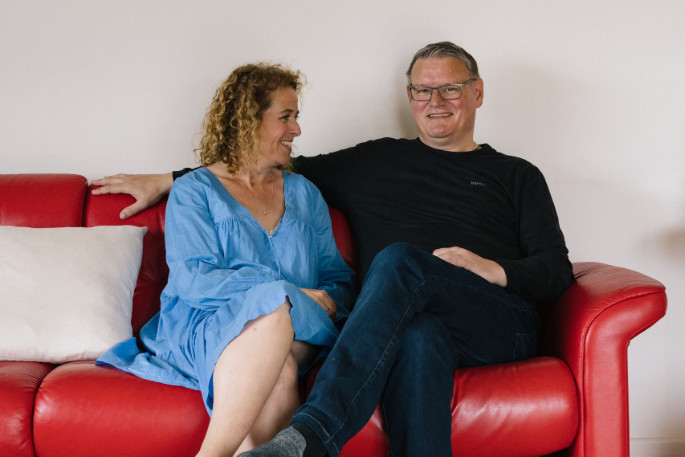A Tauranga man suffering from an aggressive form of cancer is calling on the government to scrap GST payments for those self-funding their own treatments.
Murray Denyer's life took a sinister turn in 2017 when a 9cm tumour was detected on one of his kidneys. After immediate surgery for renal cell carcinoma, the cancer later metastasised, spreading first to the lungs before attacking his pancreas, liver and pelvic bone in late 2019.
Given between two and five years to live by his oncologist, Murray's options were laid bare. Immunotherapies – modern drugs that boost your immune system and fight off cancer – quickly became the only show in town, and an expensive show at that.
Over the next two years, his spend on self-funded treatments would top $200,000, with $26,000 of that figure going on GST.
'That stings a bit,” says the recently retired law firm partner and former Zespri general counsel. 'I've contributed to our economy, and I've paid a lot of tax throughout my life.”
He believes the government should reconsider its approach to modern medicines, and view them as an investment in public health, not a cost.
'New Zealanders who are self-funding their own medicines should not have to pay GST as well,” says Murray, who believes the country's health system should also pick up the tab to administer those medicines.
Currently, patients also have to pay for a nurse or clinic to administer their self-funded medication.
'If you fund the medicines upfront, you can extend a person's life as a productive, contributing citizen.
'New Zealand has a reputation for doing heroic things with funding. Look at our response to the earthquakes.
'This country is capable of moving the dial to bring about real change in how we fund and access medicines, but it requires a philosophical change in thinking. Invest in health. Frontload it. Look after your people.
'The big issue is that with the exception of a few who can self-fund these drugs, the majority of Kiwis are missing out on life-extending medicines that are publicly funded all over the developed world, and in countries that we compare ourselves to. And that is wrong.”
The father of three was initially recommended a combination of two immunotherapies – Keytruda and Yervoy. Over the course of the next year, he would pay $142,000 for the two drugs.
He has also experienced Sunitinib, which is the only treatment funded for kidney cancer in New Zealand.
'It's a dinosaur of a drug,” he says. 'It stops the tumour from sourcing a blood supply, but it has brutal side effects.”
He lived 'a fairly miserable existence” with mouth ulcers, serious digestive issues and yellowing skin but it was keeping him alive. Until it wasn't.
Blood tests revealed the drug was starting to impact his remaining kidney and the function of his liver.
'It was making me even more sick. This is the predicament you find yourself in with this disease. If you can only take the old drugs the government funds, those drugs can end up killing you. If you stop taking those drugs, then the cancer will kill you.”
Murray was forced to self-fund another treatment called Axitinib. Globally, it's considered a ‘standard of care' for advanced kidney cancer, and has been on Pharmac's list of drugs it wants to fund since 2013. Almost nine years later, it's still not funded.
'I am fortunate,” he says. 'I could access the money to pay for my treatment, but should we have to in New Zealand? What if I hadn't been able to? What about people who have this cancer and who can't pay for their own drugs? Their lives are cut short, often by years.”
Murray remains unsure of what the future holds or how much time he has left, but he says cancer has been a great teacher.
'I think we spend a lot of time distracted by work-related dramas. Not anymore. I am focused on my wife Lisa and my kids, the quality of my existence and being present in my life. It took cancer to get me here.
'The law firm I work at, I absolutely love it to death. The last thing I would ever have contemplated was retiring early, but here I am.
'I am now asking the partners ‘how long do you want to spend with your nose to the grindstone?' and I remind them that they need balance. Don't spend your life solving other people's problems.”
Right now, Murray spends time keeping 'the voices in the night” at bay. If he has a night sweat, or he feels a pain in his side, he worries for a while, but then gets on top of the chatter.
'Sometimes I think ‘what the hell did I do to deserve this?' I've tried to be a good person and lead a pretty healthy lifestyle, but you can't look back and you can't focus on self-pity.
'This is what you need to remember. More often than not, our time on this planet is limited. Make sure you're proud of the life you're living, and you look after those you love.”
This story was reproduced with the kind permission of The Medicine Gap. To read the full, unedited version, visit: www.themedicinegap.co.nz/voices/murray-kidney-cancer/

